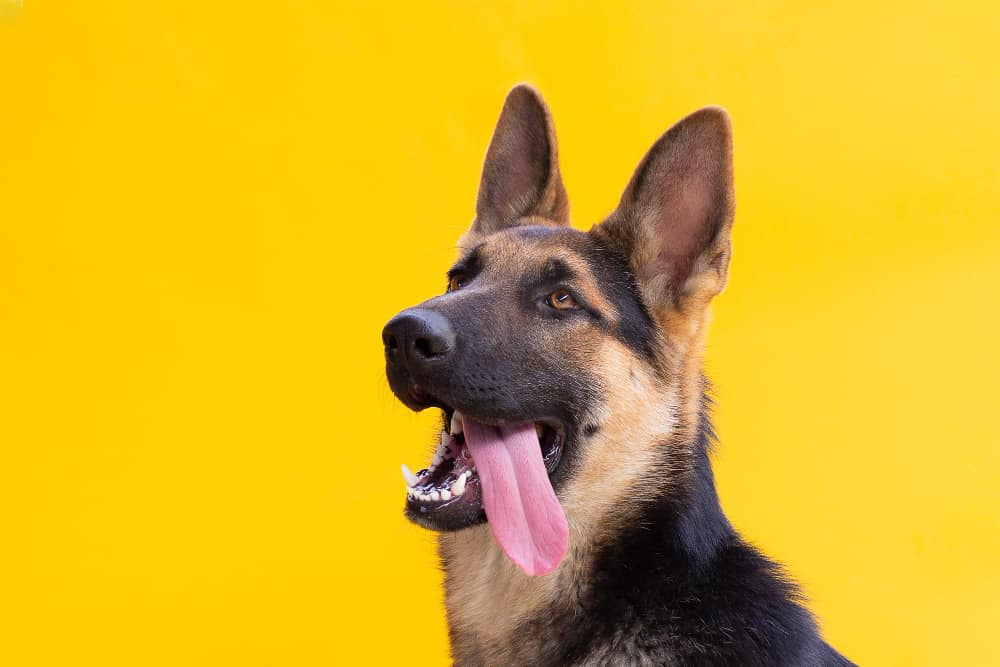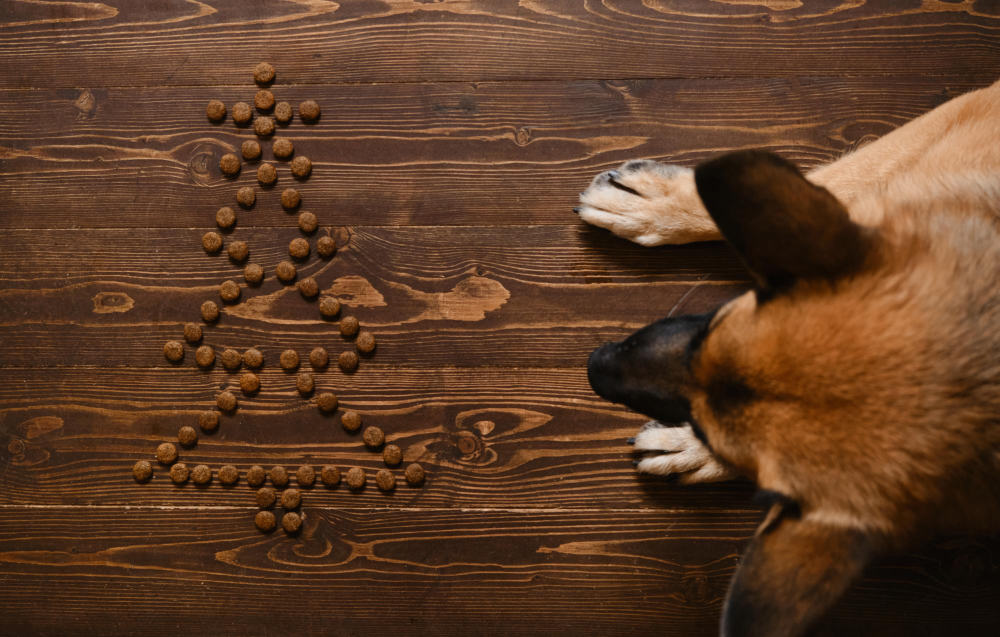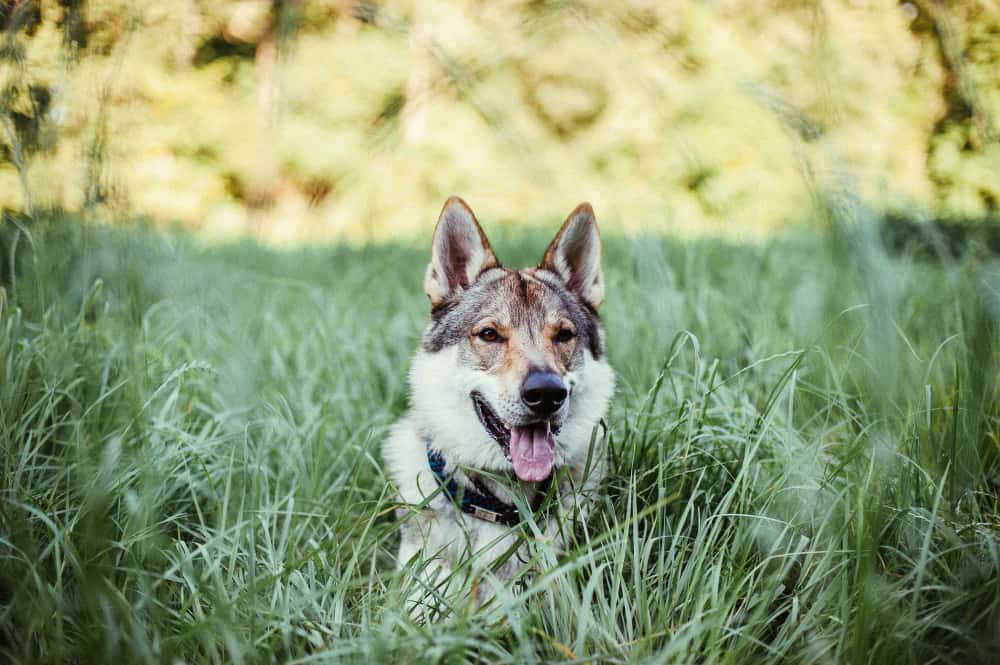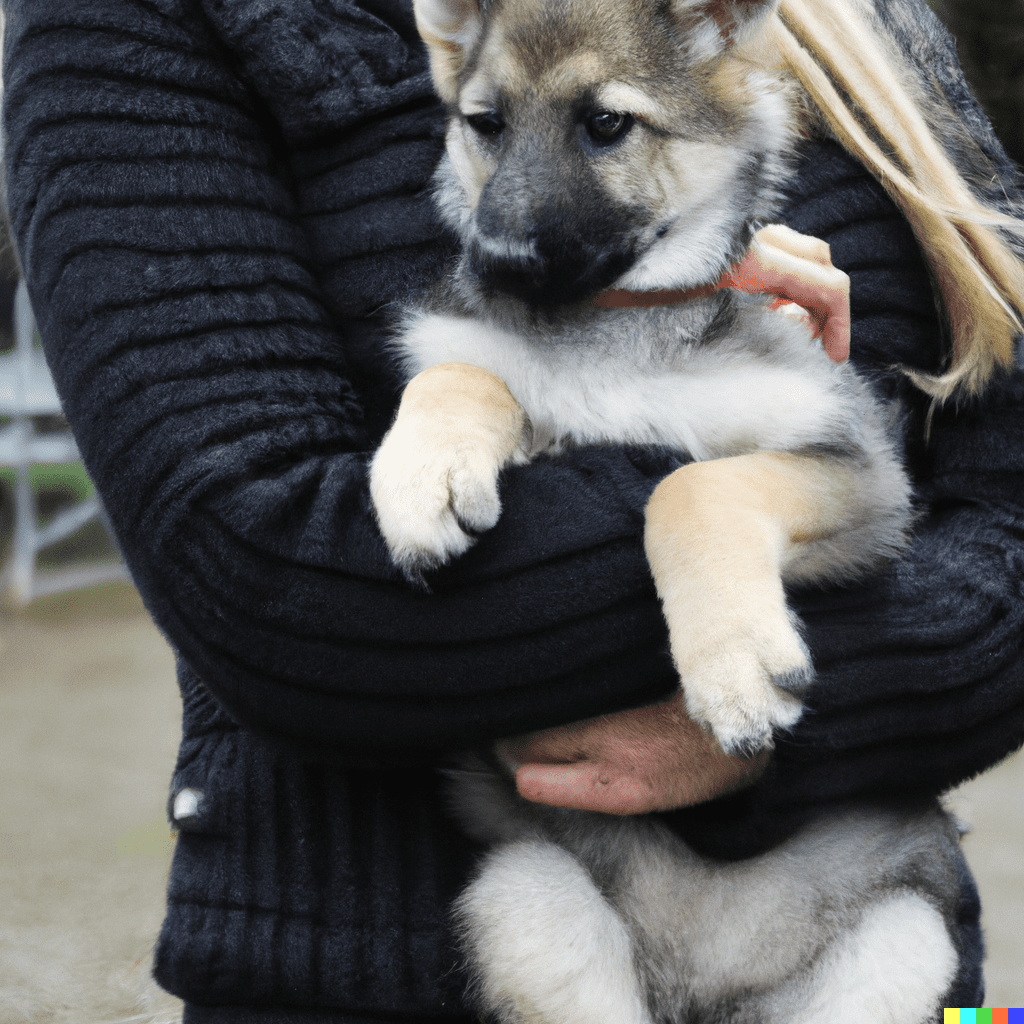It can be worrying when your dog won’t eat. But it is also very common for dogs to lose interest in their food once in a while. Rarely is it due to a serious problem of any kind. And more often than not, it will often resolve itself.
When a German Shepherd stops eating for more than 12 hours without vomiting or diarrhea, it might only be a temporary emotional upset. As an owner, you should make sure your dog has a consistent feeding schedule with fresh and high-value food. Adding bone broth and warming up the dog food can also be your best bet.
In this article, we will first go through a list of reasons why your German Shepherds may have stopped eating. Then we will give you a handful of simple and easy tips on how to get them eating again. Let’s dive right in!
Top reasons why German Shepherds won’t eat
There can be many reasons why your dog may have stopped eating. Here are some of the most common issues:
- #1 Your German Shepherd is bored with his foodRecent changes at home
- #2 Recent changes at home
- #3 Stress and anxiety
- #4 A natural change of appetite with aging
- #5 Possible food allergy
- #6 Upset by recent vaccinations or medications
- #7 Tooth pain that makes eating uncomfortable
- #8 An underlying illness
The causes range in severity. However, this is common with German Shepherds and can usually be easily fixed with simple changes.
#1 Your German Shepherd is bored with his food
German Shepherds can be a very particular breed and may get bored with their food. Giving them the same food every day may lead to them not eating it. If they are still happily eating treats and other foods, that may mean they are ignoring meals in favor of the other items.
#2 Recent changes at home
There can be many changes that could lead to your dog not eating. Changes could include moving, a different work schedule, or even a new pet. Changes may disrupt your dog’s routine and lead to them not wanting to eat. Changes can be unavoidable, and keeping your dog on a routine should help them get back into their schedule.
#3 Stress and anxiety
Dogs may experience stress and anxiety the same as humans do. It may come from being bored or left alone for long periods. They may also become stressed if there are loud noises or if strangers are around. It can lead to them being uncomfortable and not wanting to eat.
#4 A natural change of appetite with aging
As dogs age, they can be expected to have a reduced appetite. They might not have the same interest in food as they did when they were younger. If they have stopped eating, you can make some simple changes, such as offering softer foods that can be easier for them to eat.
#5 Possible food allergy
German Shepherds are highly susceptible to food allergies and have sensitive stomachs. If a specific food consistently disagrees with them, they will stop eating it. There is also the possibility they have eaten something else that is giving them discomfort and will cause them to stop eating meals.
#6 Upset by recent vaccinations or medications
Has your dog been given a new medication or vaccinations? It may lead to temporarily not eating. After vaccination, your dog’s immune system is working hard, and he may not want to eat for a little while. Medications can have the same effect but should also be temporary.
#7 Tooth pain that makes eating uncomfortable
If it hurts for your dog to eat, he may have trouble chewing and start avoiding food altogether. Tooth pain may also lead to your dog pawing at its mouth, drooling more than usual, or having exceedingly bad breath. Tooth pain can be a severe health problem and lead to infections.
#8 An underlying illness
A severe underlying illness can cause your German Shepherd dog not to eat. It is usually the least likely reason but should still be considered. Severe conditions such as cancer, infections, or kidney diseases will cause a dog to stop eating. These are all issues that need to be addressed with your veterinarian.
More posts on feeding your German Shepherds

Must read:
- The Best & Worst Dog Foods Ever – According to a 45-Year Veterinarian
- Worst Dog Food for German Shepherds
- Is Grain-Free Good for German Shepherds?
- How to Stop Food Aggression Towards People in German Shepherds?
Choosing the best dog food:
- The Best Food For German Shepherd Puppies
- Best Cheap Dog Food for German Shepherds (Dry and Wet Food)
- Best Dry Dog Food for Your German Shepherd Puppies: How to Choose?
- The Best Dog Food for a 12 Months German Shepherd
- What To Look For When Buying Dog Food for German Shepherds?
- Is Royal Canin German Shepherd Dog Food Any Good? Read This First
On feeding your German Shepherd:
- How Much Does It Cost to Feed a German Shepherd Puppy in the First Year?
- How Much Does an 8-Week-Old German Shepherd Puppy Eat in a Day? A Feeding Guide
- How Much Does a 3-Month-Old German Shepherd Dog Eat in a Day? A Feeding Guide
- How Much Does a 6-Month-Old German Shepherd Dog Eat in a Day? A Feeding Guide
- Can Dogs Eat Vanilla Ice Cream?
- 17 Human Foods That Are Safe For German Shepherds to Eat
- The Benefits of Feeding German Shepherds Raw Food
- How to Feed Your Dog Raw Food on a Budget?
- Is It Ok to Give Raw Meat to My German Shepherd Puppy?
For picky eaters:
Ways to make your German Shepherds eat
There are many options to get your German Shepherd to eat again. Here are some solutions that you can introduce:
- #1 Increase activity to stimulate appetite
- #2 Introduce a consistent schedule
- #3 Limit the feeding time to 15 minutes
- #4 Add high-value food to their meal
- #5 Make mealtime fun
- #6 Try hand feeding
- #7 Create a safe eating environment
#1 Increase activity to stimulate appetite
German shepherd dogs need an average of 2 hours a day of exercise. Those 2 hours should be made up of physical and mental stimulation. Walking and playing fetch are everyday physical activities. Mental activities could include training and puzzle toys.
Exercise does not have to be done all at once and can be more accessible when broken up throughout the day. Proper exercise is essential to your dog’s overall health and to avoiding problem behaviors. Increased activity should increase your dog’s appetite.
#2 Introduce a consistent schedule
Consistency and schedules are essential to dogs. Disruptions can affect their appetites, so keeping consistent is vital. Meals should be offered twice daily, ideally after a walk or activity. Make sure to choose times that you can keep as consistent as possible.
Automatic feeders can be used if your schedule varies and it is hard to keep to exact times. Portions are dependent on the weight and life stage of your German shepherd. Make sure to check your food’s recommended amounts.
#3 Limit the feeding time to 15 minutes
It might sound cruel to limit the amount of time your dog has to eat, but it can benefit them. If food is left out, your dog may start grazing and not eating the entire meal because your dog is used to having it left out.
Dry food can become stale and wet food should not be left out for long, or it can cause digestive problems. Limiting feeding time should encourage them to eat while it is available.
#4 Add high-value food to their meal
Mixing high-value food should encourage your dog to eat. Plain chicken and unsweetened canned pumpkin can help to settle an upset stomach and entice your dog to eat. You can also add a portion of wet food to dry kibbles.
Adding broth to dry food can make it more palatable. Ensure the broth you use does not have added harmful ingredients like onions or garlic and is low in sodium. Treats you already use and know your dog likes can also make a high-value mix to encourage them to eat.
#5 Make mealtime fun
There are a few ways that you can make mealtime fun for your GSD. You can purchase or create puzzle toys that provide that mental stimulation and fun. A puzzle toy can easily be made by rolling up dry food in a towel and then letting your dog sniff out and unravel it. You could also fill a cardboard box with pieces they must get through. There are many cost-effective ways to make meals fun.
#6 Try hand feeding
Hand feeding can get your dog eating again, along with other benefits. If your dog is not eating, he may be shy, and feeding by hand helps them to build trust and be more comfortable.
It can also help impulse control, rewarding good behavior by having self-control. Hand feeding can combat resource guarding, letting the dog know that food comes when you are around. These go alongside training, and german shepherd dogs are a working class breed, so being rewarded for work can help increase appetite.
#7 Create a safe eating environment
Dogs may stop eating if they are uncomfortable with the environment. It can include changes inside or outside the home. It may be too loud or too many people around while trying to eat.
If your dog has a crate, this may be an excellent place to feed them. A quiet and secluded place could also be a great way to get them eating again. Dogs can be sensitive to changes, so keeping a secured area where they are fed is essential.
Conclusion
A dog that is not eating is worrisome. However, if your dog is not eating and is either vomiting, having diarrhea, or both, contact your veterinarian within 8-12 hours. (Source: AKC)

Hayley is a writer and animal lover. She is an avid reader which led to a love of writing.



